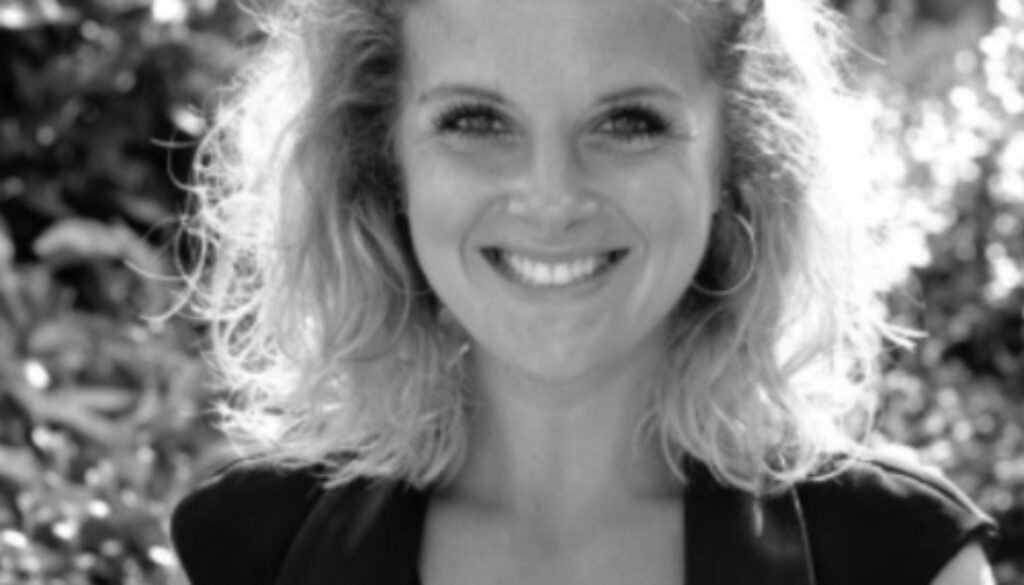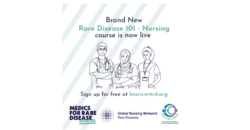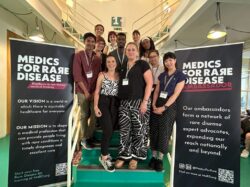BBC Puts a Spotlight on Rare Disease — Ambassador Charlotte Chapman-Hart Tells Her Story
Today the BBC featured our Ambassador Charlotte Chapman-Hart, sharing a powerful first‑hand account of life with a rare condition. In a candid interview with investigative reporter Nicola Gilroy, Charlotte described the long, uncertain road to diagnosis and the life‑altering consequences of care that wasn’t properly coordinated or informed by rare‑disease knowledge.
Ten years ago Charlotte was unexpectedly diagnosed with Chiari malformation and syringomyelia and underwent urgent major brain surgery. The operation saved her life, but the aftermath has been a steady series of challenges for Charlotte and her family.
Whilst the challenges have shaped the resilient and enthusiastic individual I am today, they have also nearly cost me my life – more than once – due to lack of communication and co-ordination of care.
Why this matters beyond one story
Charlotte’s experience is not an isolated incident. Although any single rare disease may be uncommon, collectively around 6% of the population live with a rare condition — and many face diagnostic delays, fragmented care, and being disbelieved by medical professionals. These failures are more than inconvenient; they can be devastating and, in some cases, avoidable.
Dr Lucy McKay, our CEO, joined the conversation on BBC Radio Nottingham with Summaya Mughal and reinforced this point: “Unfortunately in rare disease this is actually a very common story”. She went on to point out that approximately the same number of people live with cancer as a rare disease in the UK. Approximately 3.5 million according to Macmillan and The UK Rare Diseases Framework.
But unlike with cancer there isn’t that understanding and that support network that is built into the NHS so people fall through those gaps…and so things like delayed diagnosis, inappropriate or un-informed management, and uncoordinated care happen. Because there isn’t that structure to support healthcare professionals or to support the patient.
Medics for Rare Disease has been working with the Department of Health and Social Care and different NHS organisations to improve clinical practice in rare disease but more systemic change is needed.
Ambassador, advocate, catalyst for change
Charlotte works for an NHS Foundation Trust and manages her role from home to protect her health. Despite those limitations she has driven meaningful improvements locally, collaborating with her employer to make services more inclusive for people with rare conditions. Her work was recognised recently when she received the ‘Outstanding Individual Award’ from North West Anglia NHS Foundation Trust (NWAFT).
It never ceases to astonish me just how much the organisation has nourished my life. It has shown belief in me when others didn’t and has had a genuine appetite to overcome any hurdles that may arise when having to do things in a slightly unorthodox way,” Charlotte says — a testament to what inclusion and partnership can achieve.
Medics for Rare Disease: scaling lived experience into system change
We’re proud that Charlotte used her BBC platform to highlight Medics for Rare Disease. Our Ambassador Programme trains and supports healthcare professionals and advocates to deliver Rare Disease 101 training, run events, influence policy and support one another. By building a global network of “rare aware” clinicians and advocates, we aim to close the gaps that lead to delayed diagnosis and poor care.
How you can help turn attention into action
Read and share: Amplify Charlotte’s interview — awareness saves lives.
Listen to Charlotte and Lucy’s interview on BBC Radio
Learn: Start your free Rare Disease 101 training to transform your clinical practice
Find clinical resources including case studies to improve your practise on NHS England’s Genomics Education Programme website




